Abstract
STUDY QUESTION: Did the Medicare Alzheimer's Disease Demonstration with its case management and community service waivers affect the use of community-based long-term care services among people with dementia and their primary caregivers? DATA SOURCES: Baseline and periodic caregiver interviews. Measures include client and caregiver attributes and self-reported service use. STUDY DESIGN: The demonstration randomly assigned voluntary applicants into treatment and control groups. Treatment group cases were eligible for case management and for up to $699 per month in community care benefits. The actual monthly entitlement varied among the eight demonstration communities due to regional cost and inflation adjustments over time. Analyses are for the year after enrollment. DATA COLLECTION: Analyses are of cases surviving six months or more in the community after enrollment (n = 5,209). Cases received baseline and semi-annual assessments. PRINCIPAL FINDINGS: The intervention of case management and community service reimbursement had a strong, consistent, and positive effect on the likelihood of using home care (including homemaker/chore services, personal care services, companion services) and adult day care. Treatment group clients were at least twice as likely as control group clients to be using any of the four community-based services. A similar, but less pervasive effect was achieved with caregiver training and support group participation. Reimbursement provided by the demonstration's Medicare waiver was generally not sufficient to exceed the level of control group service acquired through private payment. CONCLUSIONS: Reimbursement levels within the demonstration may have enabled more individuals to purchase some services, but they were not sufficient to increase the average level of use over those in the control group. No consistent differences between demonstration models were found in service use likelihood or average use among users.
Full text
PDF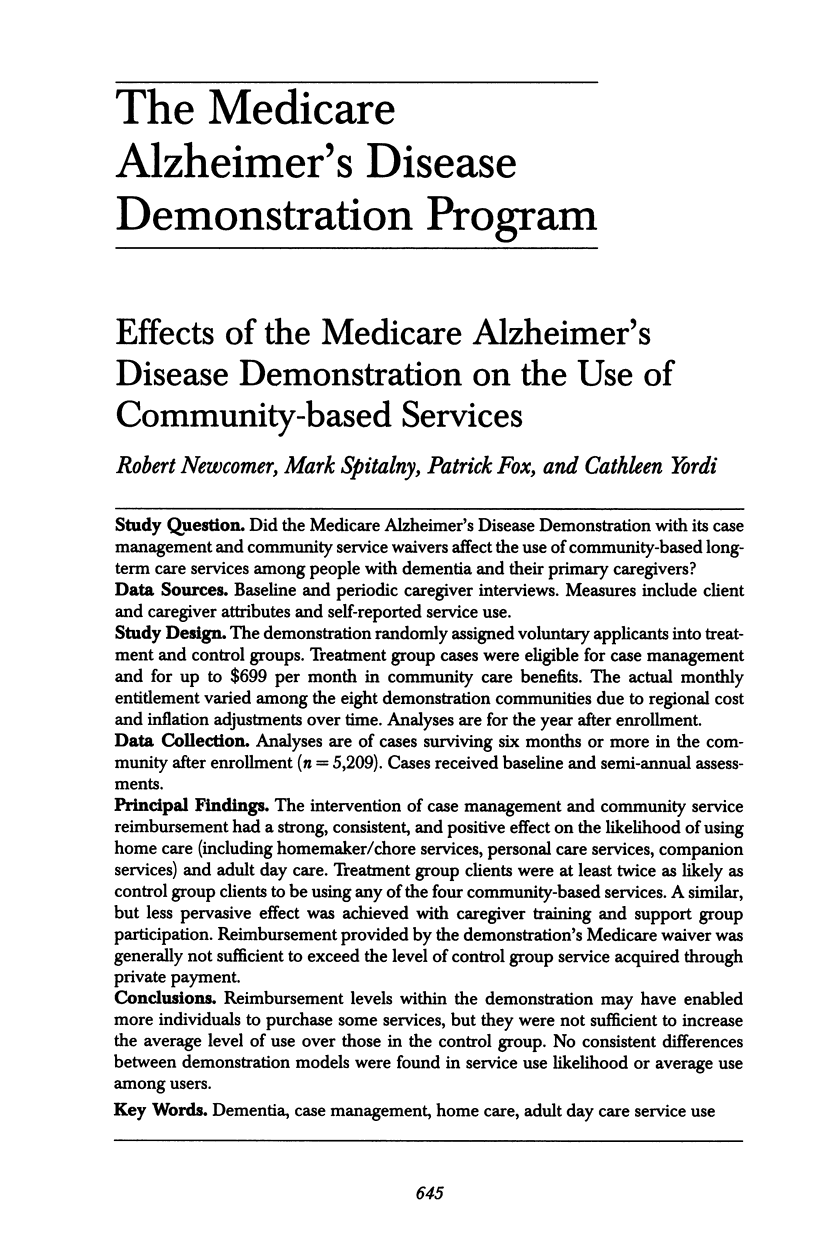
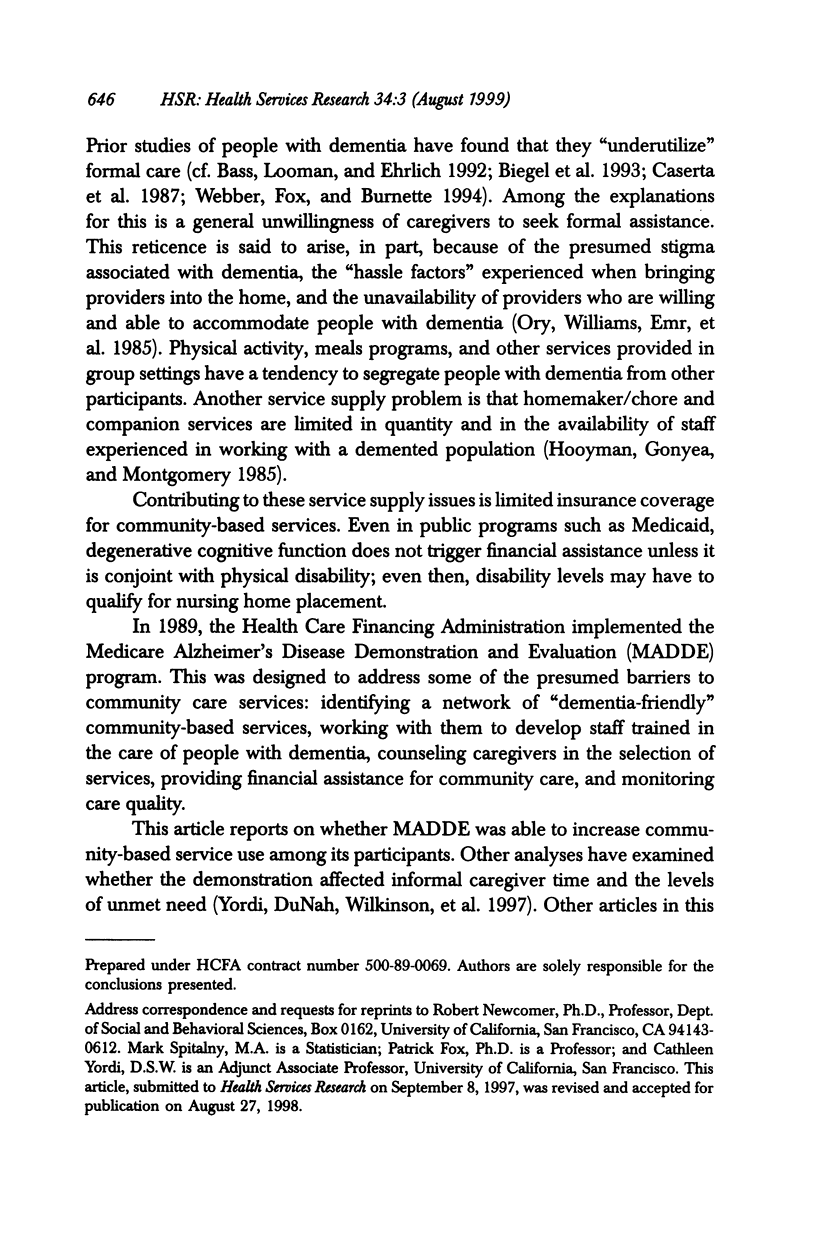
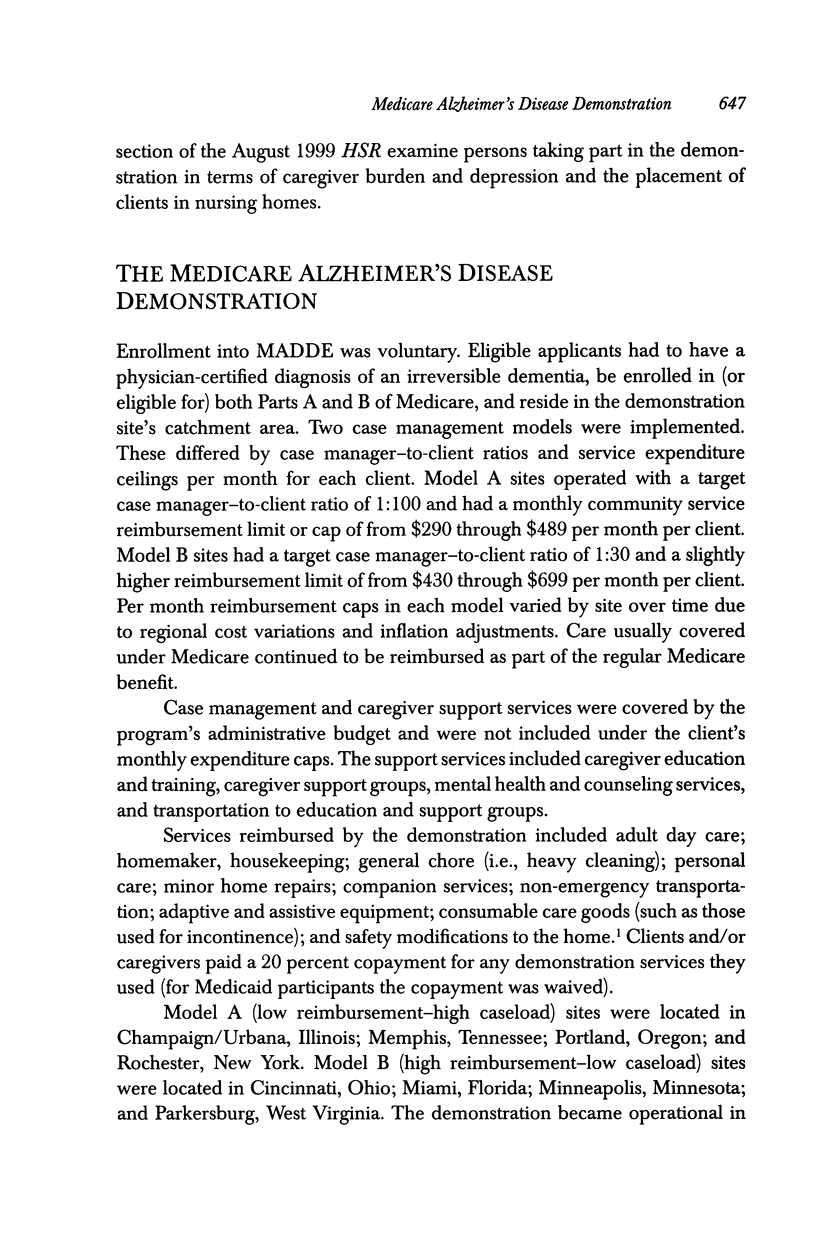
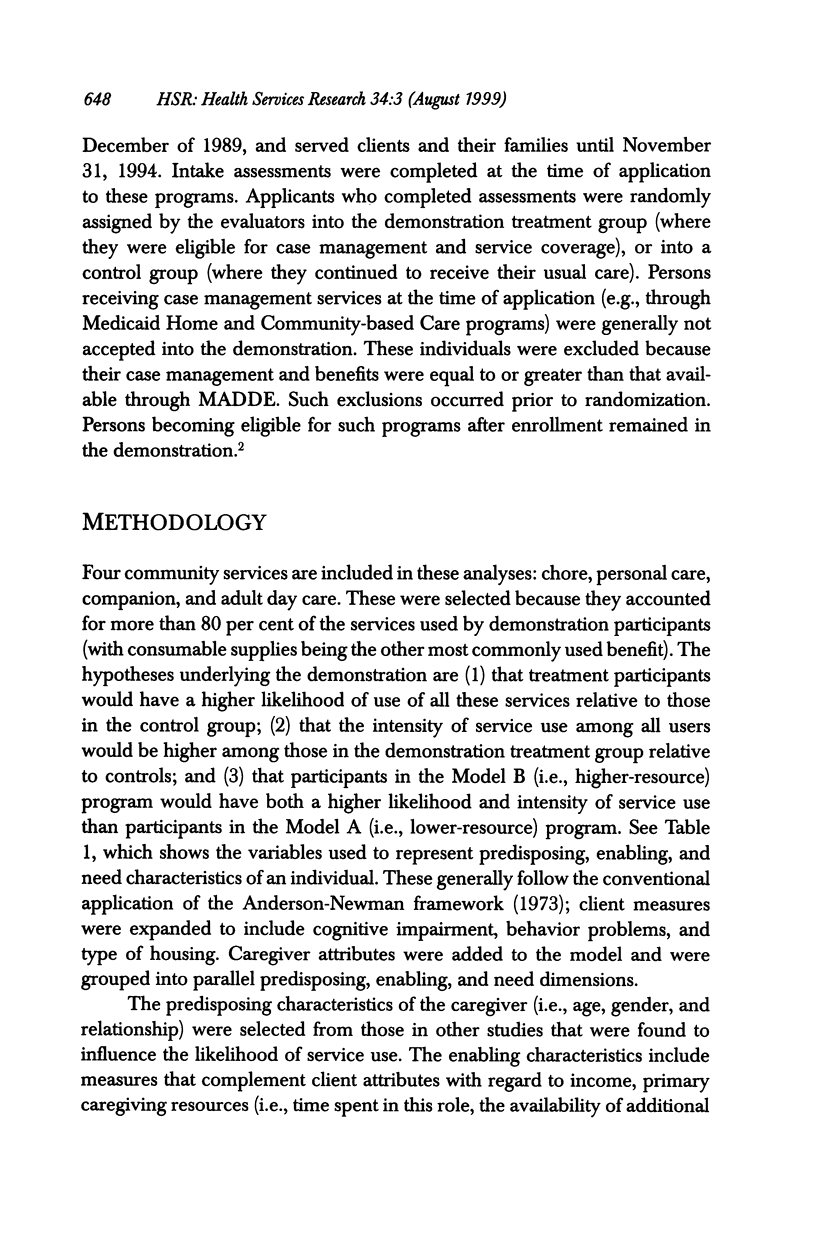
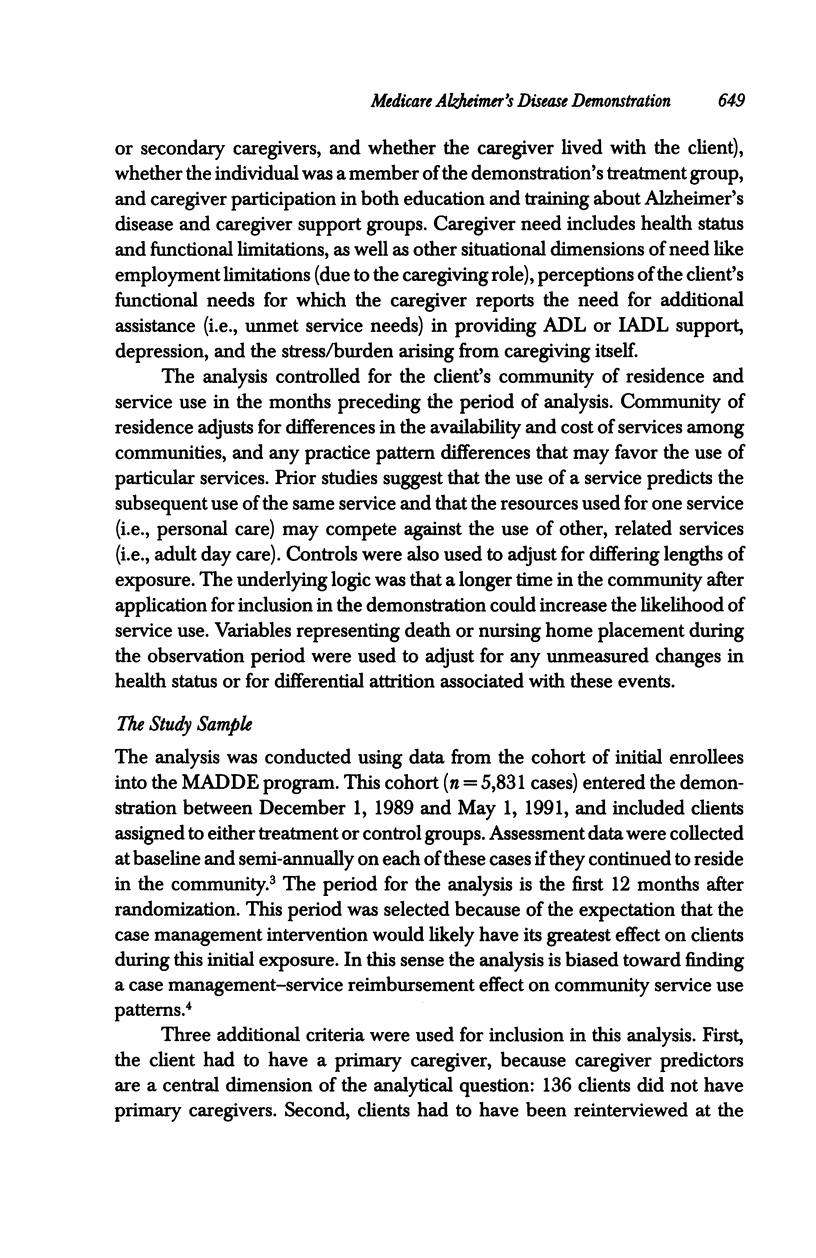
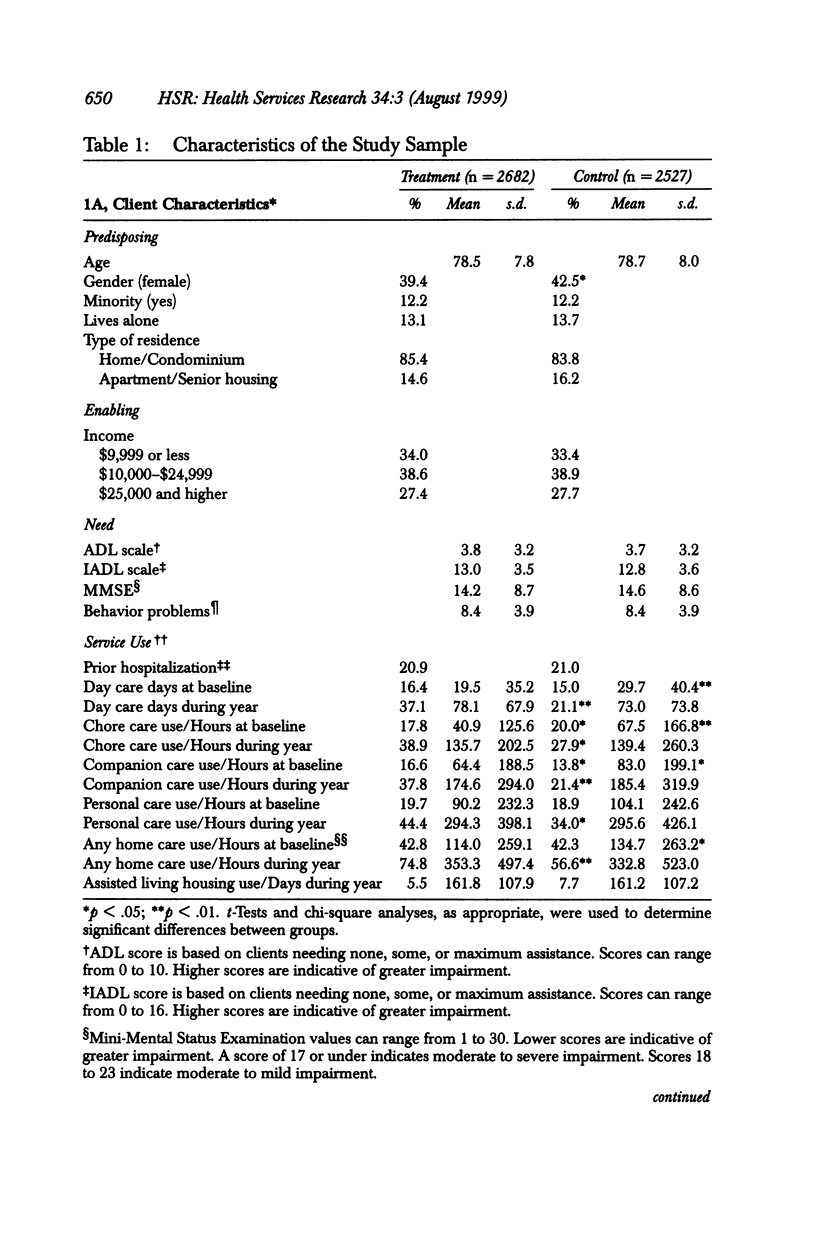
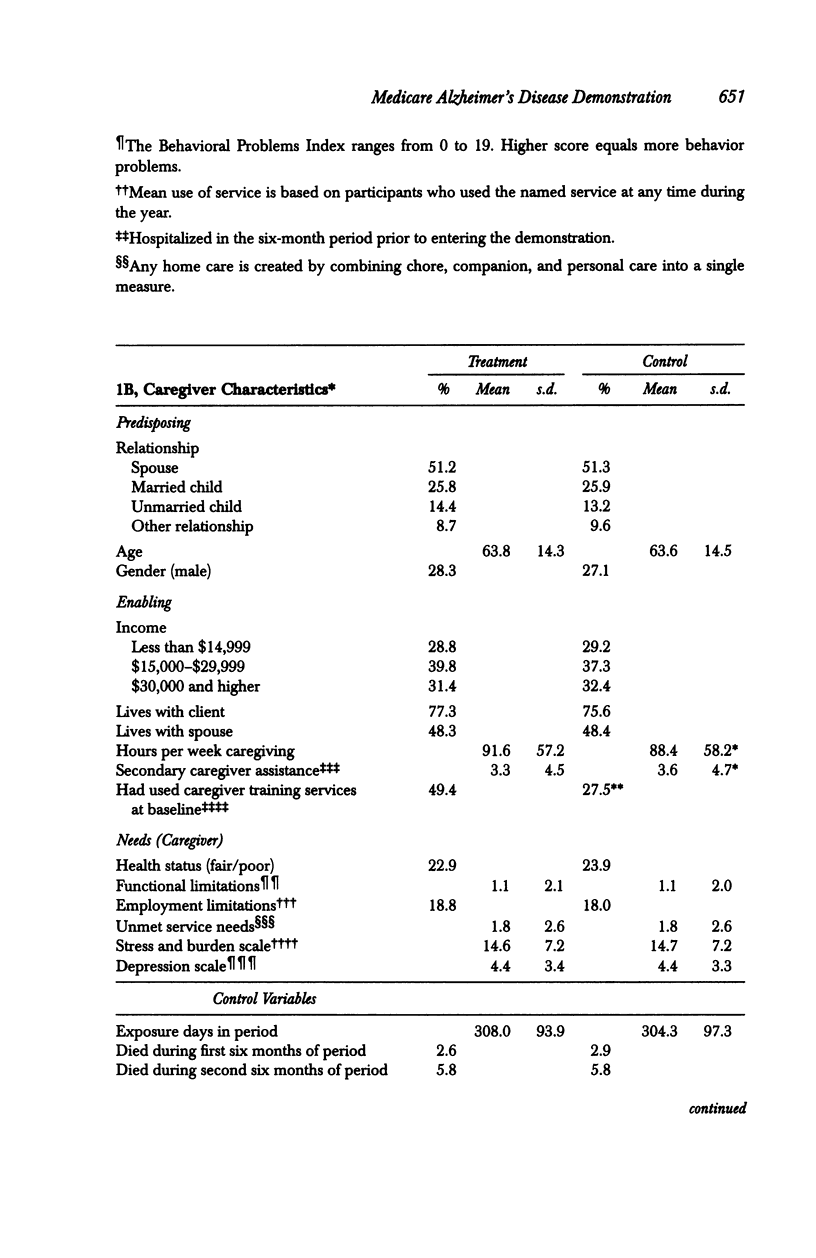
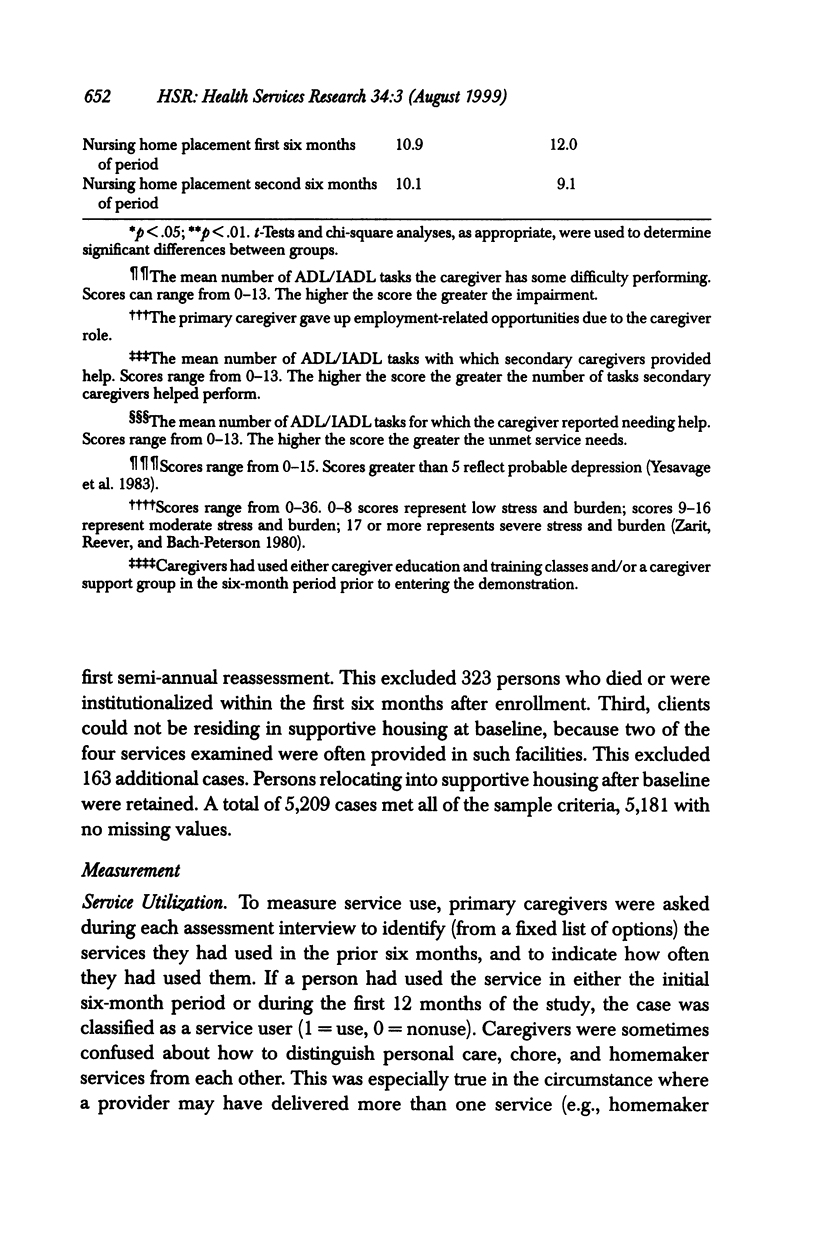
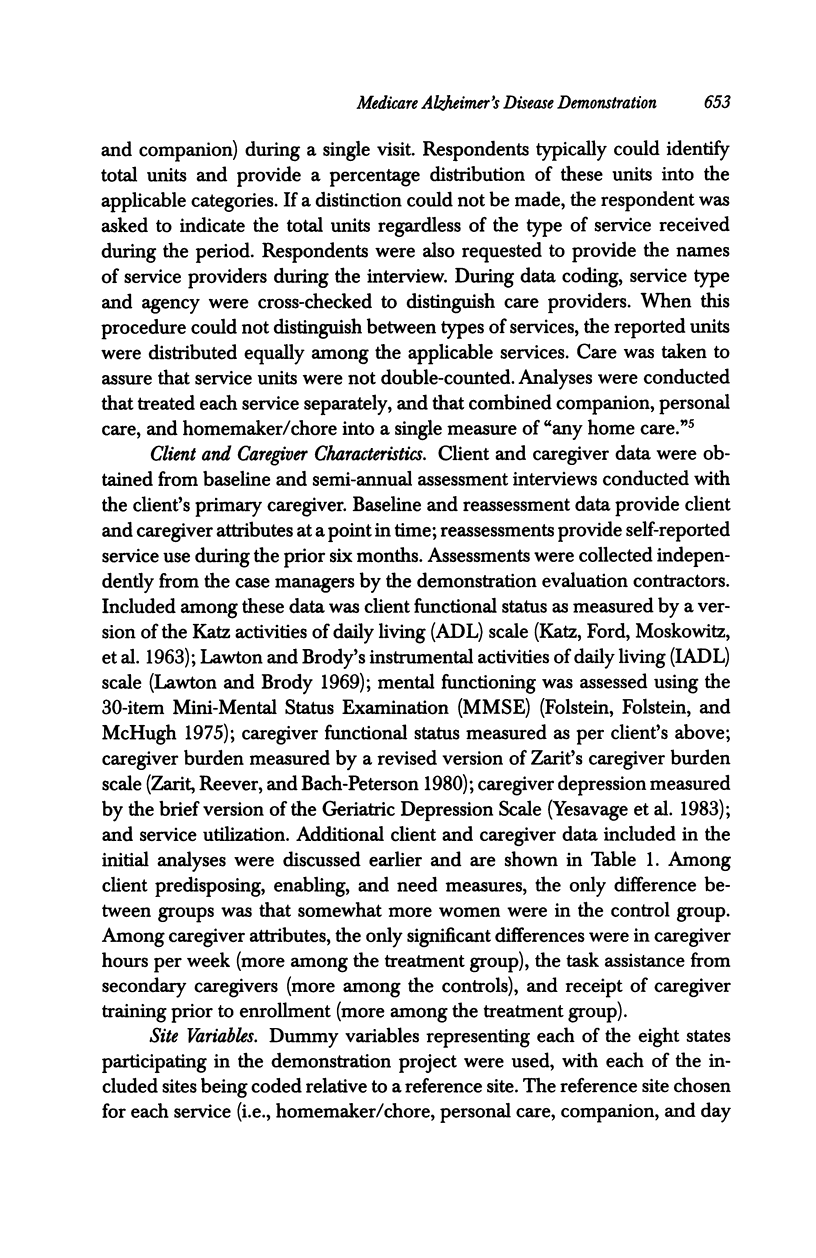
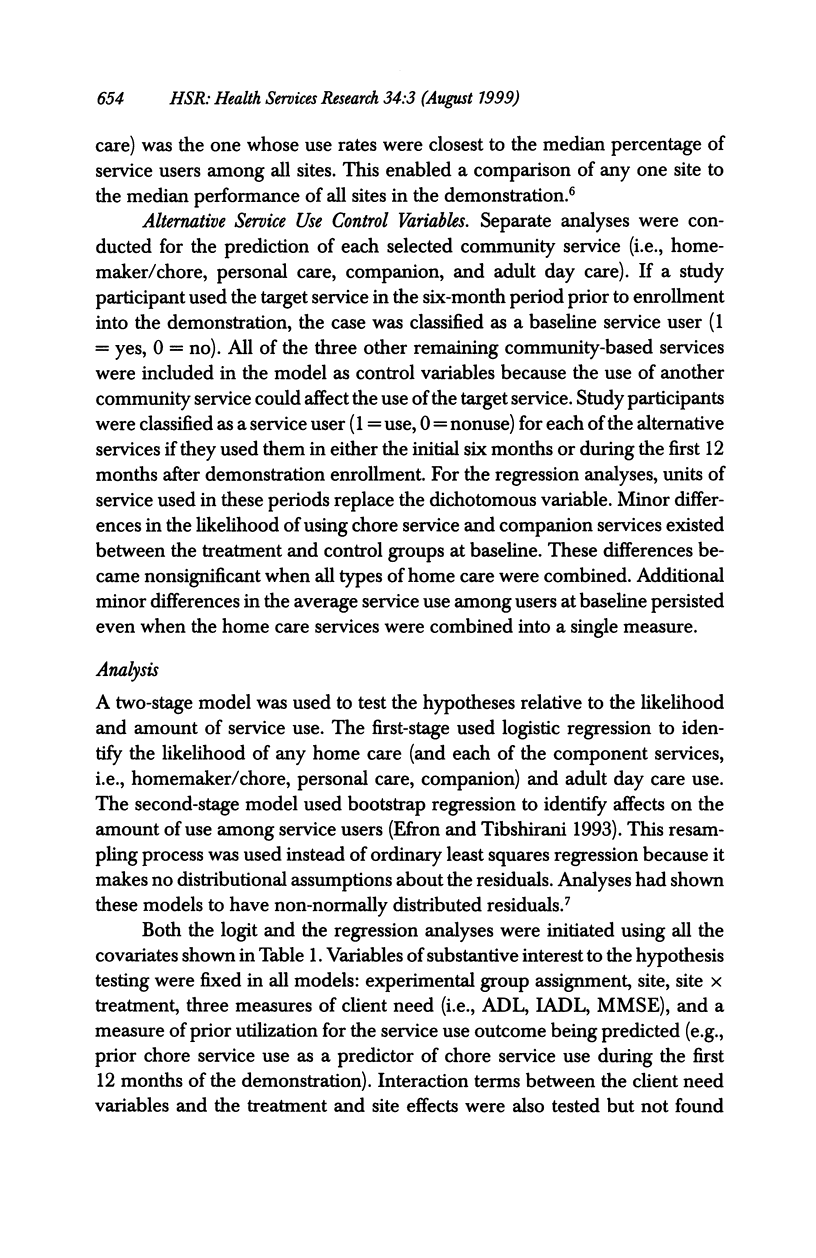
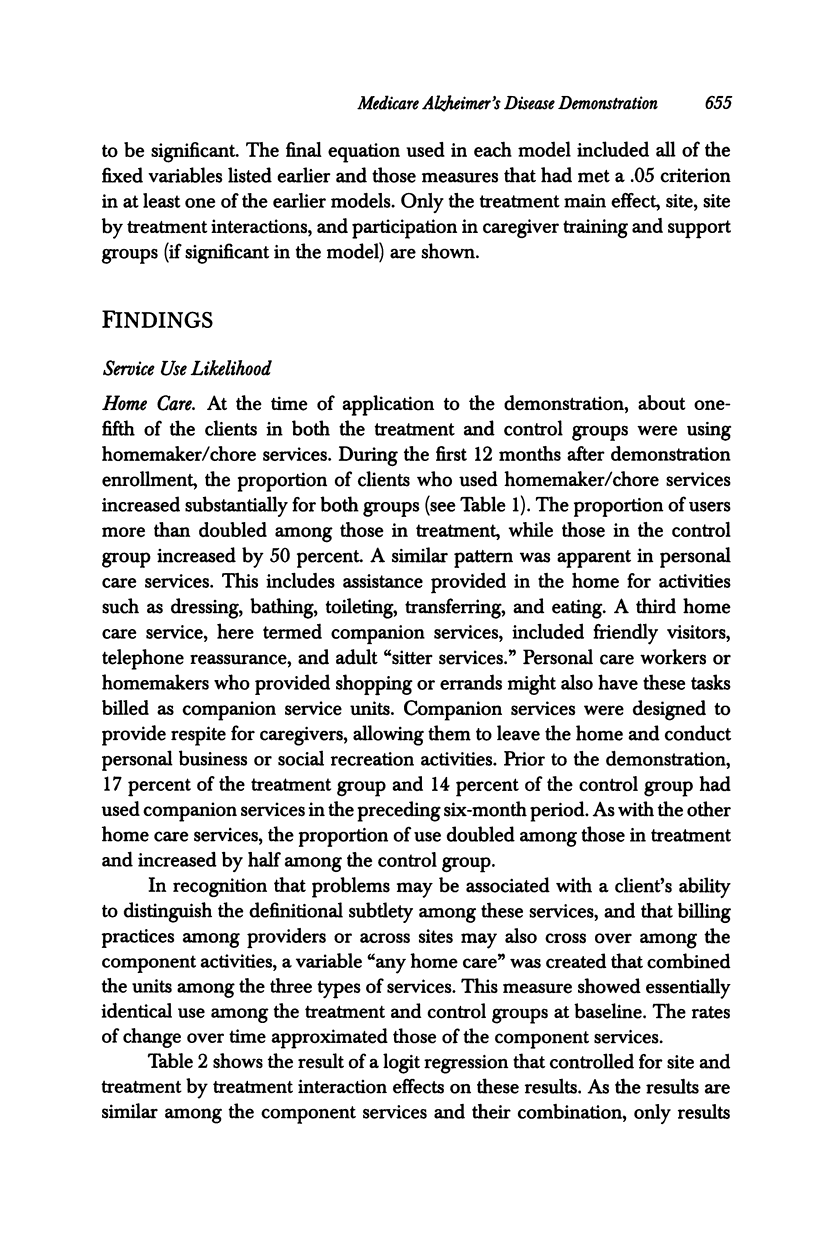
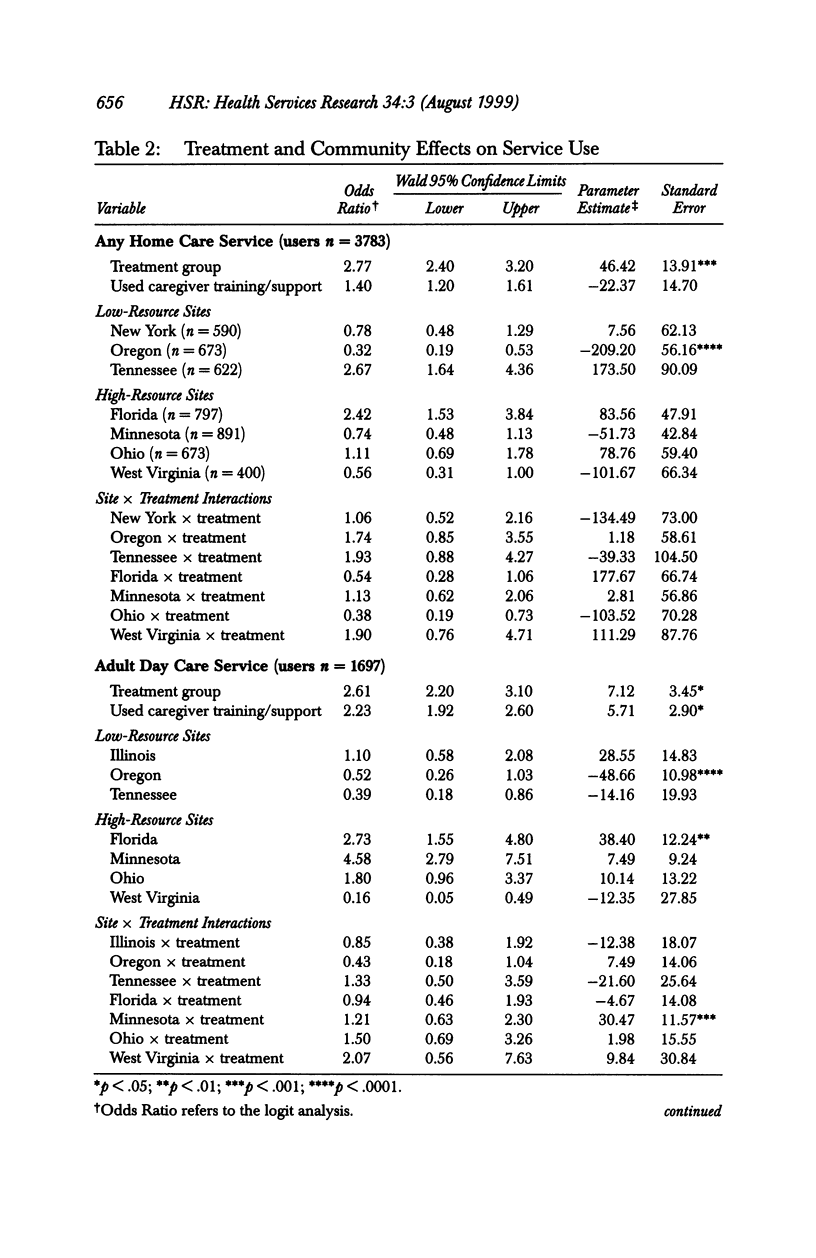
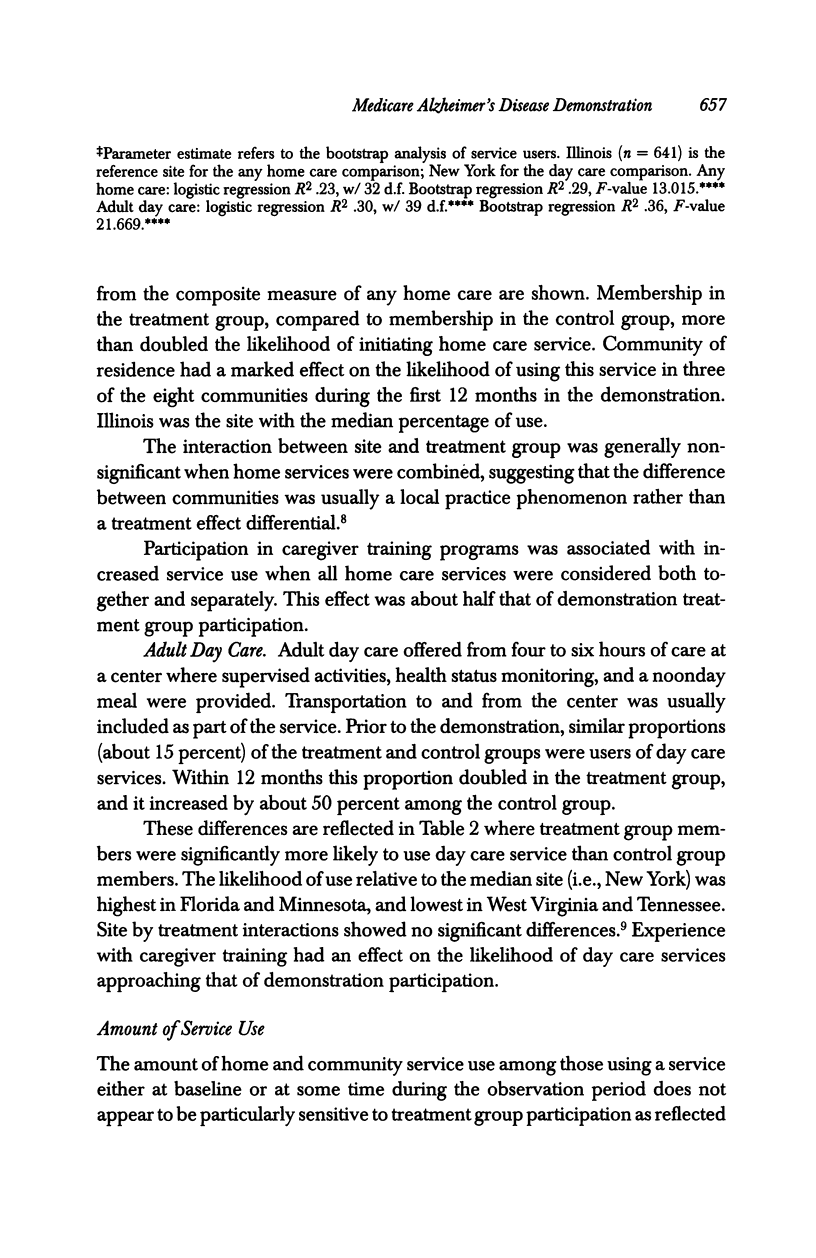
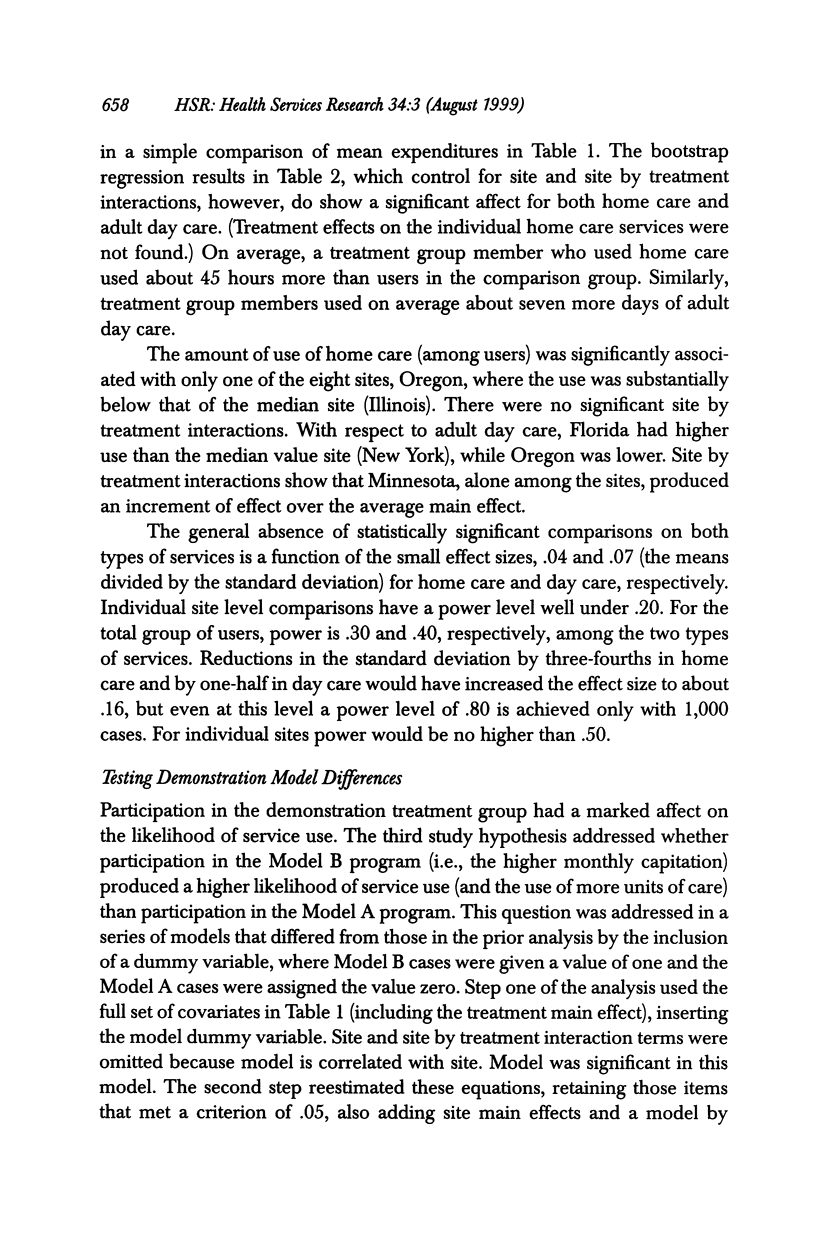
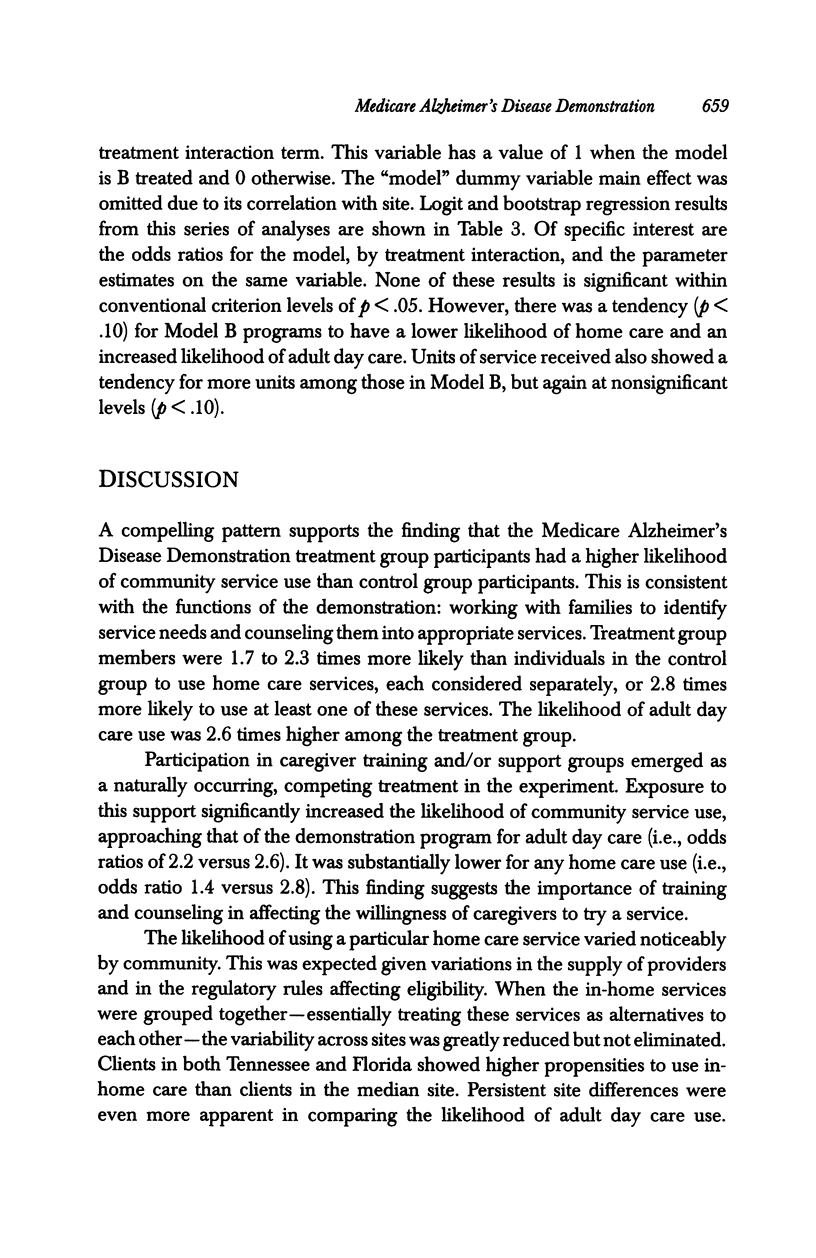
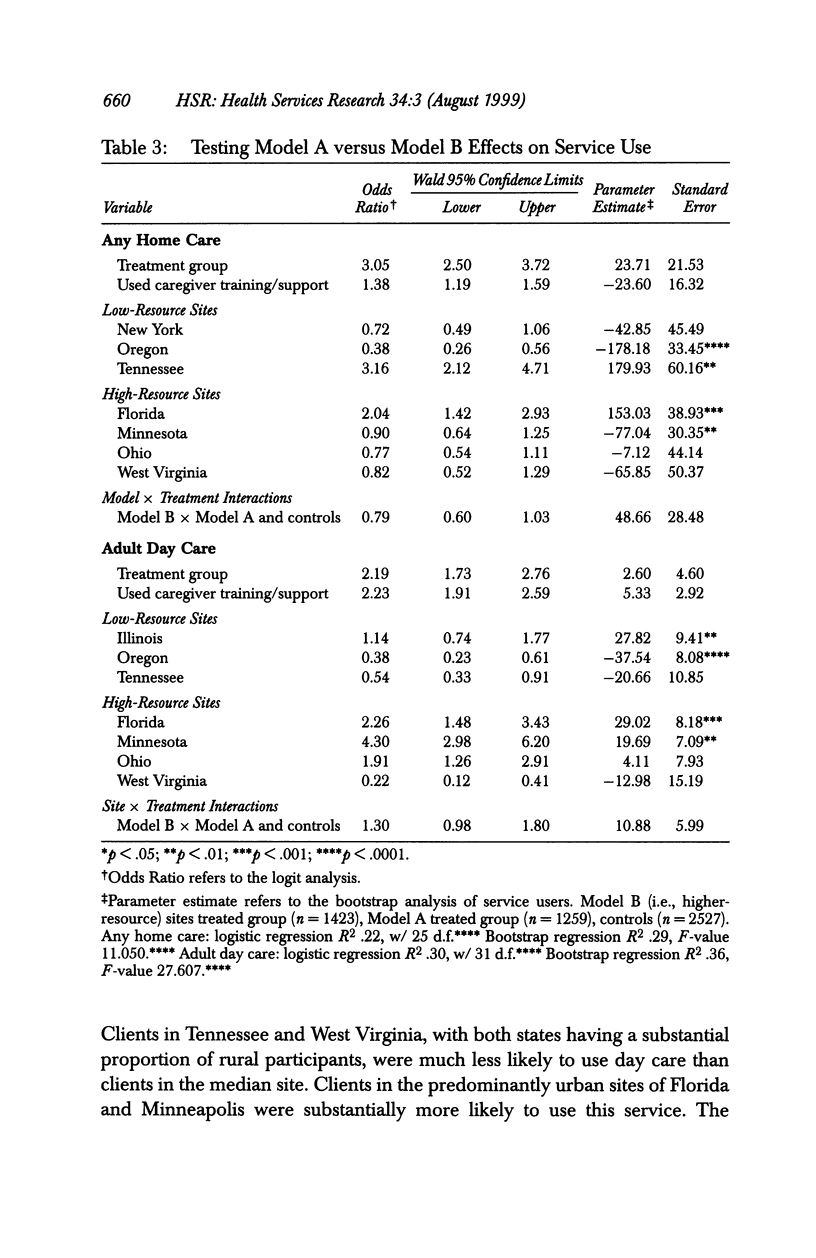
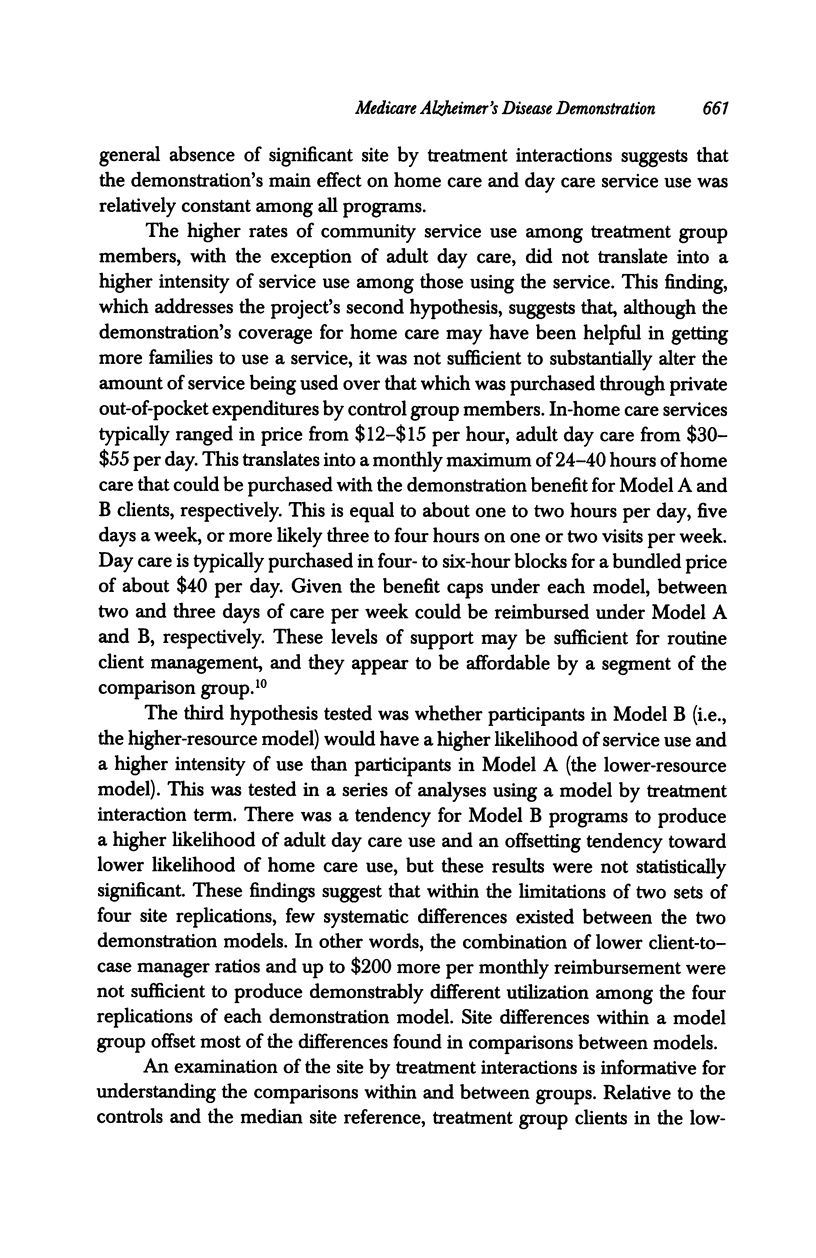
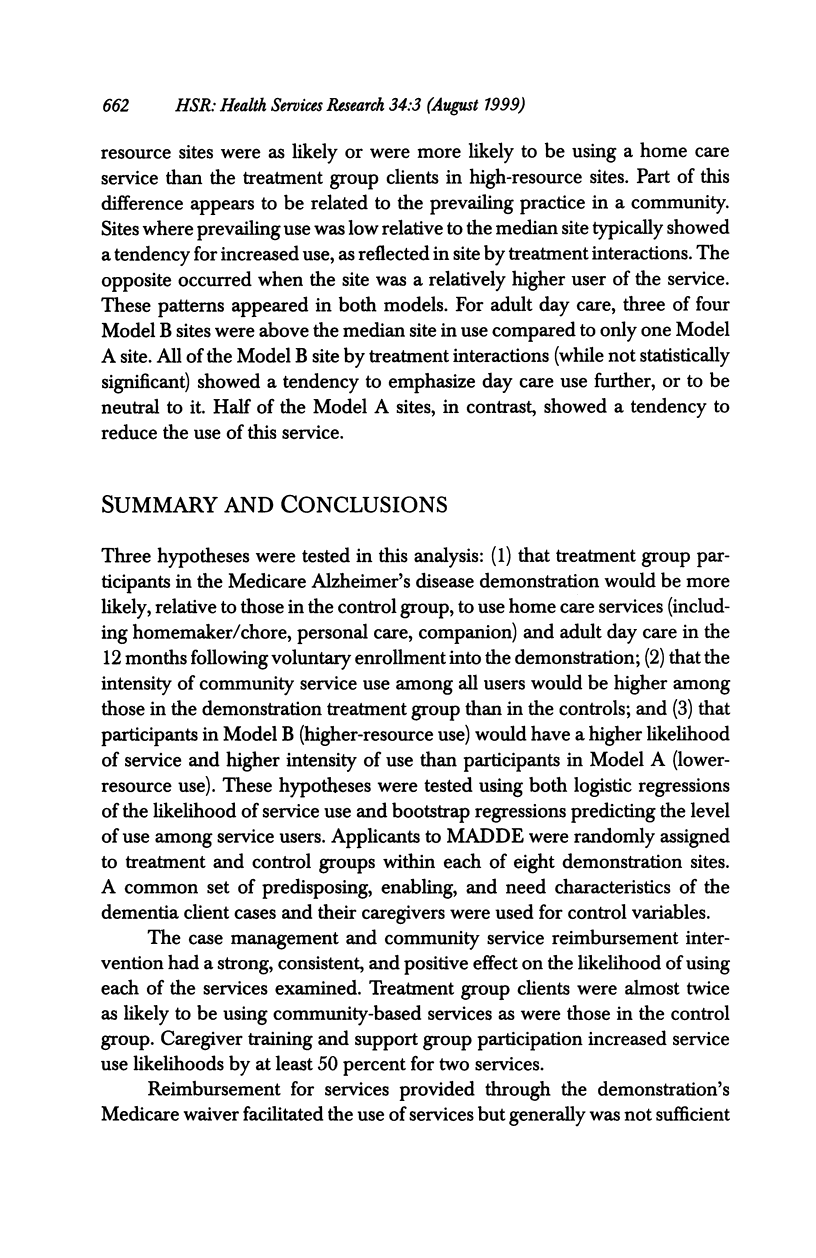
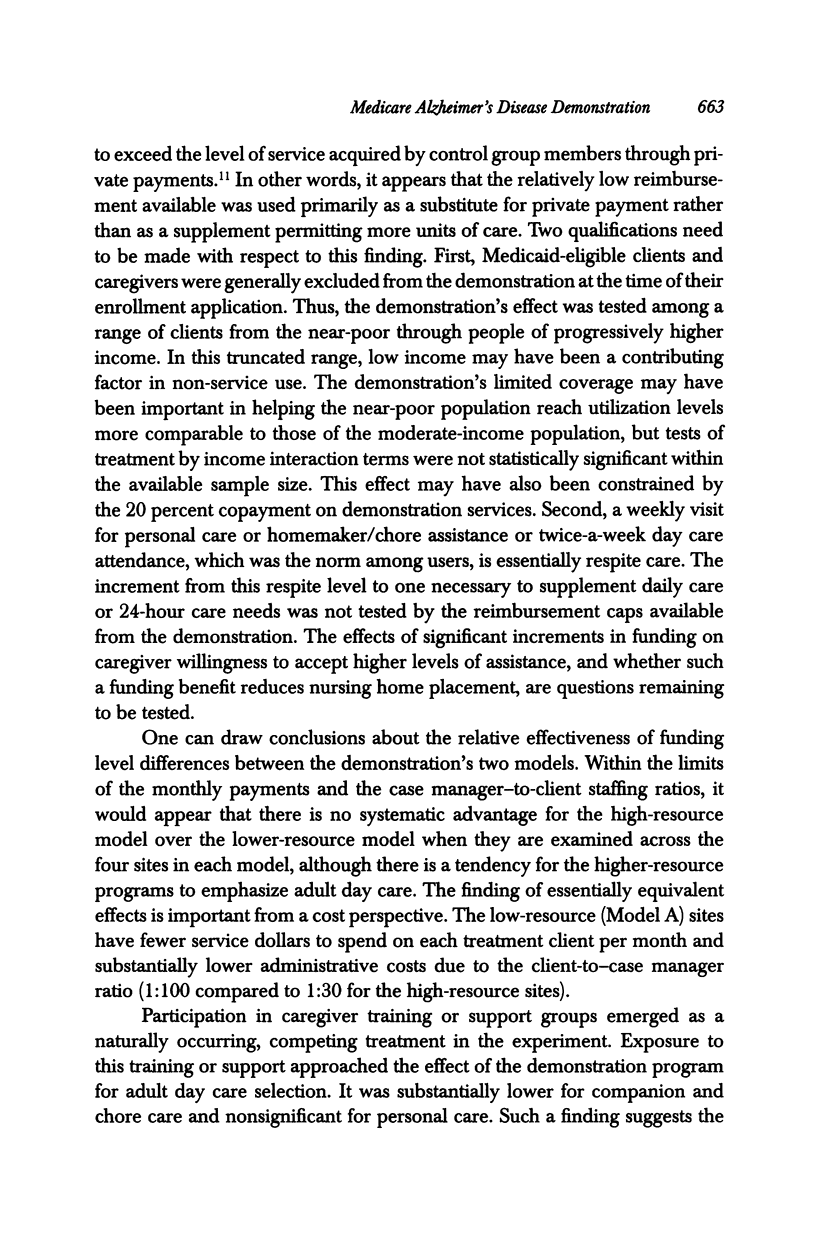
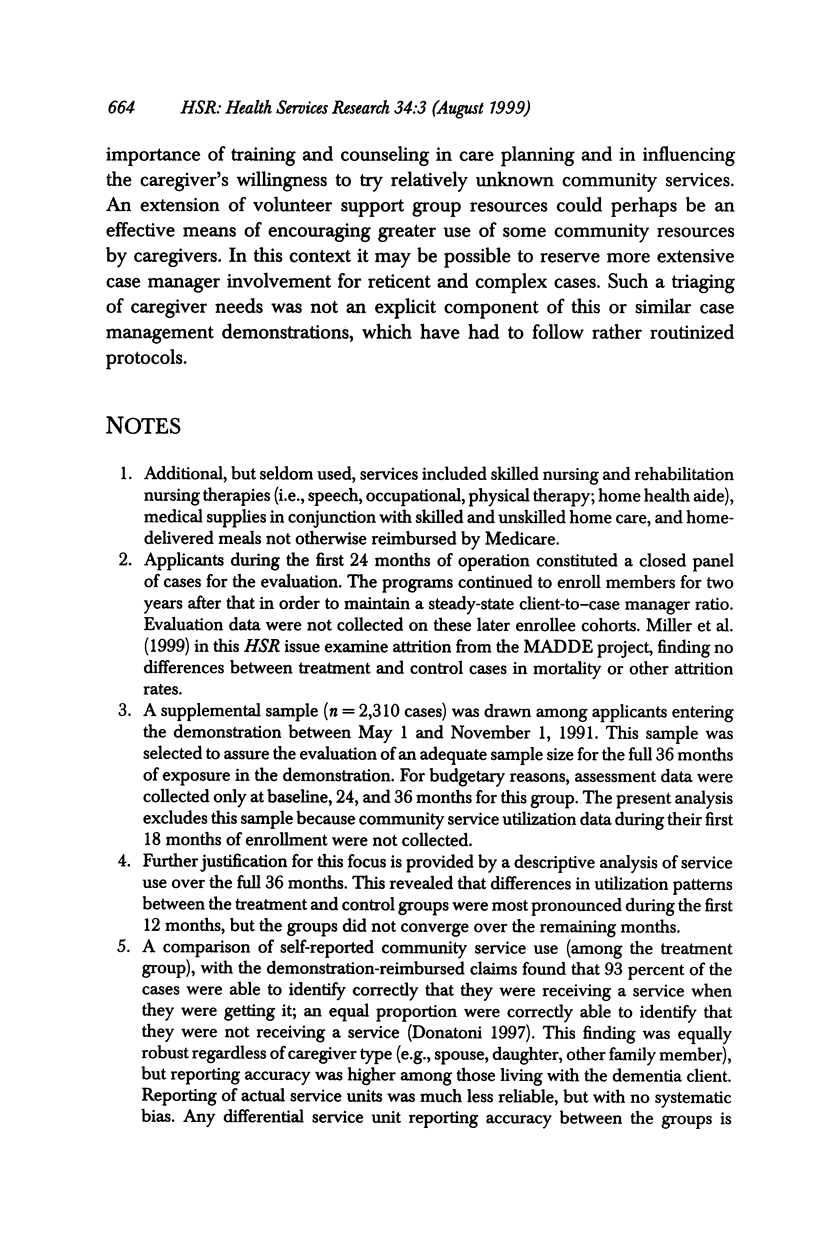
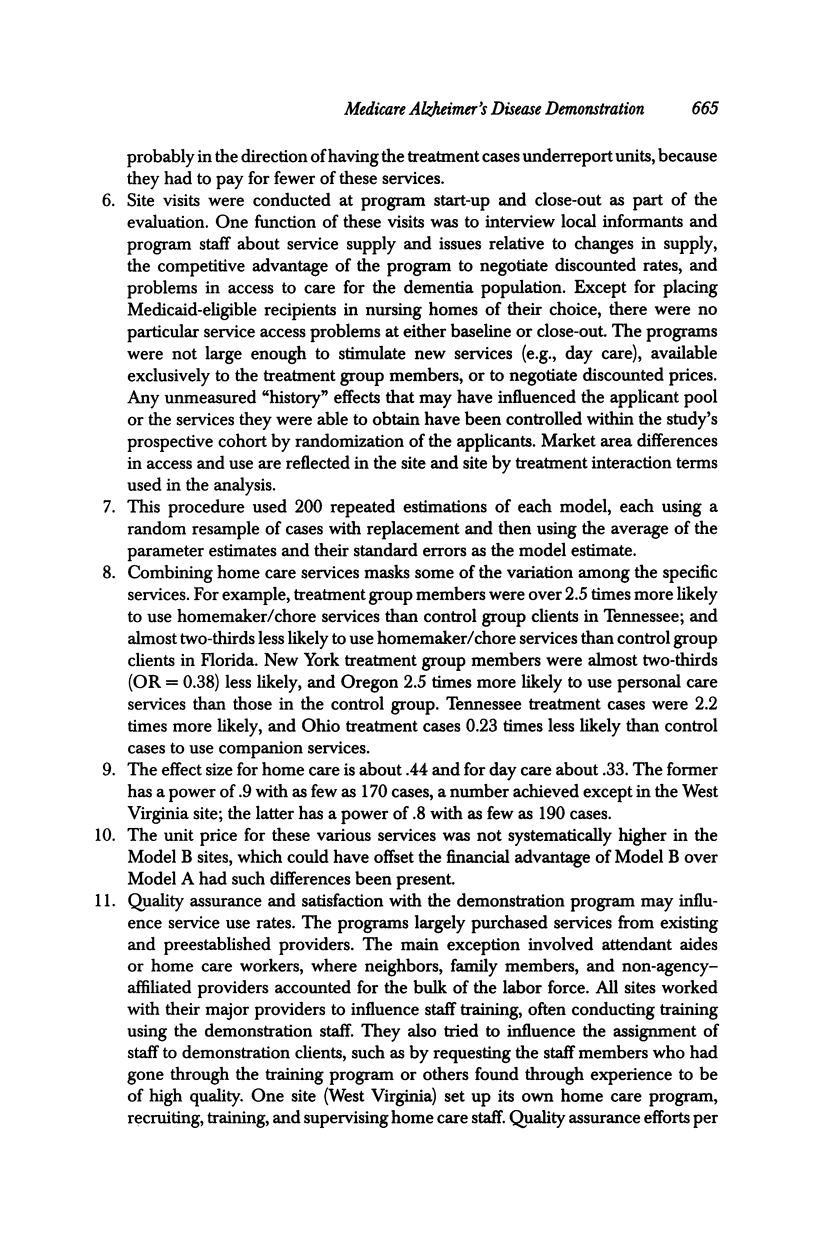
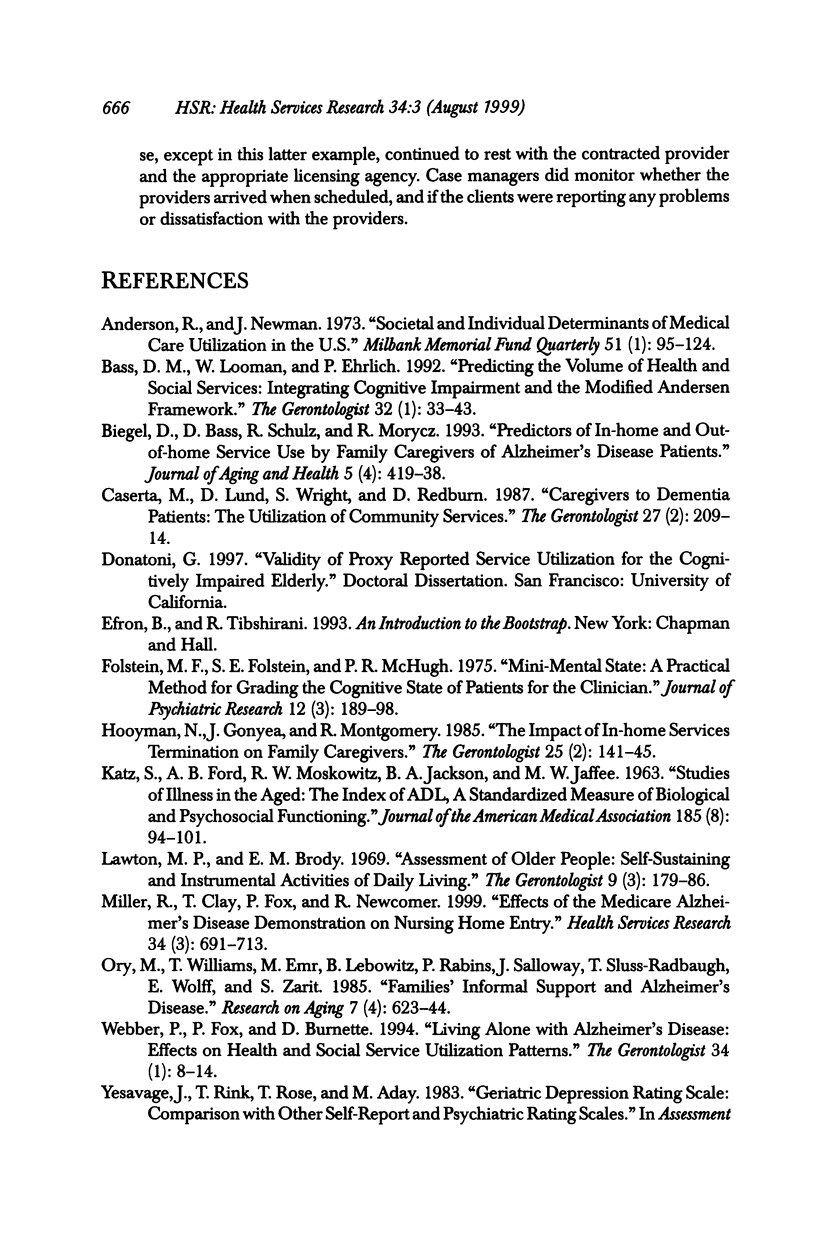

Selected References
These references are in PubMed. This may not be the complete list of references from this article.
- Andersen R., Newman J. F. Societal and individual determinants of medical care utilization in the United States. Milbank Mem Fund Q Health Soc. 1973 Winter;51(1):95–124. [PubMed] [Google Scholar]
- Bass D. M., Looman W. J., Ehrlich P. Predicting the volume of health and social services: integrating cognitive impairment into the modified Andersen framework. Gerontologist. 1992 Feb;32(1):33–43. doi: 10.1093/geront/32.1.33. [DOI] [PubMed] [Google Scholar]
- Biegel D. E., Bass D. M., Schulz R., Morycz R. Predictors of in-home and out-of-home service use by family caregivers of Alzheimer's disease patients. J Aging Health. 1993 Nov;5(4):419–438. doi: 10.1177/089826439300500401. [DOI] [PubMed] [Google Scholar]
- Caserta M. S., Lund D. A., Wright S. D., Redburn D. E. Caregivers to dementia patients: the utilization of community services. Gerontologist. 1987 Apr;27(2):209–214. doi: 10.1093/geront/27.2.209. [DOI] [PubMed] [Google Scholar]
- Folstein M. F., Folstein S. E., McHugh P. R. "Mini-mental state". A practical method for grading the cognitive state of patients for the clinician. J Psychiatr Res. 1975 Nov;12(3):189–198. doi: 10.1016/0022-3956(75)90026-6. [DOI] [PubMed] [Google Scholar]
- Hooyman N., Gonyea J., Montgomery R. The impact of in-home services termination on family caregivers. Gerontologist. 1985 Apr;25(2):141–145. doi: 10.1093/geront/25.2.141. [DOI] [PubMed] [Google Scholar]
- Lawton M. P., Brody E. M. Assessment of older people: self-maintaining and instrumental activities of daily living. Gerontologist. 1969 Autumn;9(3):179–186. [PubMed] [Google Scholar]
- Miller R., Newcomer R., Fox P. Effects of the Medicare Alzheimer's Disease Demonstration on nursing home entry. Health Serv Res. 1999 Aug;34(3):691–714. [PMC free article] [PubMed] [Google Scholar]
- Ory M. G., Williams T. F., Emr M., Lebowitz B., Rabins P., Salloway J., Sluss-Radbaugh T., Wolff E., Zarit S. Families, informal supports, and Alzheimer's disease. Current research and future agendas. Res Aging. 1985 Dec;7(4):623–644. doi: 10.1177/0164027585007004008. [DOI] [PubMed] [Google Scholar]
- Webber P. A., Fox P., Burnette D. Living alone with Alzheimer's disease: effects on health and social service utilization patterns. Gerontologist. 1994 Feb;34(1):8–14. doi: 10.1093/geront/34.1.8. [DOI] [PubMed] [Google Scholar]
- Yordi C., DuNah R., Bostrom A., Fox P., Wilkinson A., Newcomer R. Caregiver supports: outcomes from the Medicare Alzheimer's disease demonstration. Health Care Financ Rev. 1997 Winter;19(2):97–117. [PMC free article] [PubMed] [Google Scholar]


